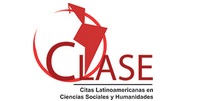Aprendizaje situado para el cuidado del paisaje: experiencias en escuelas de Veracruz y Yucatán
DOI:
https://doi.org/10.32870/dse.v0i31.1525Resumen
En este artículo buscamos mostrar cómo las progresiones de aprendizaje situado que se diseñan e implementan por docentes de educación básica en escuelas de México contribuyen a propiciar prácticas educativas y socioecológicas transformadoras, particularmente, integrando los conocimientos, las prácticas y las preocupaciones cotidianas de las mujeres sobre su paisaje como contexto dotado de sentido y susceptible de cuidado. Teóricamente: partimos de una perspectiva emancipatoria de la educación, en conjunción con el aprendizaje situado en el paisaje como contexto ecológico, social, cultural e histórico. Aspiramos a una educación ecofeminista, no antropocéntrica, ni androcéntrica que ponga en el centro los conocimientos y prácticas de cuidado del paisaje construidos por las mujeres. Metodológicamente: llevamos a cabo una investigación colaborativa y de formación acompañada de docentes, que recurre a conversaciones, entrevistas, observación y sistematización de la experiencia docente. En los resultados presentamos y discutimos hallazgos sobre a) conocimientos, prácticas y preocupaciones socioecológicas de las mujeres sobre/para el cuidado del paisaje propio, auténtico; b) aprendizajes situados en la interacción social con docentes, estudiantes, familias y mujeres en/desde/para el cuidado del paisaje; y, c) prácticas educativas transformadoras.
Descargas
Citas
Brandt, C. (2006). Narratives of Location: Epistemology and Place in Higher Education. En Spindler, G.; L. Hammond (eds.). Innovations in Educational Ethnography: Theory, Methods and Results. USA: Lawrence Erlbaum & Associates, 321-344.
Brandt, C. (2013). Landscapes as Contexts for Learning. En Stevenson, R.; M. Brody; J. Dillon y A. Wals (eds.). International Handbook of Research on Environmental Education. UK: Routledge, 275-283.
Brown, J.; A. Collins; P. Duguid (1989). Situated cognition and the culture of learning. Educational Researcher, 18(1), 32-42.
Denzin, N. (2019). The Qualitative Manifesto: A Call to Arms. Routledge.
Denzin, N.; Y. Lincoln (2008). Introduction. En Denzin, N.; Y. Lincoln; L. Smith (eds.). Handbook of Critical and Indigenous Methodologies. USA: SAGE, 1-20.
Ghiso, A. (2008). La sistematización en contextos formativos universitarios. Revista Magisterio, 33, 76-79.
Guba, E.; Y. Lincoln (1994). Competing Paradigms in Qualitative Research. En Denzin, N.; Y. Lincoln (eds.). Handbook of Qualitative Research. USA: SAGE, 105-117.
Lave, J.; E. Wenger (1991). Situated Learning: Legitimate Peripheral Participation. UK: Cambridge University Press.
Maxwell, J.; M. Chmiel (2014). Notes Toward a Theory of Qualitative Data Analysis. En Flick, U. (ed.). The SAGE Handbook of Qualitative Data Analysis. SAGE, 21-34.
Mendoza, R. (2020, 29 mayo). Los aprendizajes in-esperados en casa para el mundo post-Covid19. Blog Mujeres Unidas por la Educación. https://www.muxed.mx/post/los-aprendizajes-in-esperados-en-casa-para-el-mundo-post-covid19
Mendoza, R. (2022). Hacia una nueva pertinencia de la educacio?n rural e indi?gena: aprendizaje situado a partir de narrativas locales sobre preocupaciones, conocimientos y pra?cticas socio-ecolo?gicas en sus territorios. En Sartorello, S.; A. Hecht; J. Garci?a; E. Lara (coords.). Tejiendo dia?logos y tramas desde el Sur-Sur: territorio, participacio?n e interculturalidad. México: Universidad Iberoamericana, 289-302.
Mendoza, R.; J. Sandoval (2023). Aprendizaje situado para la justicia socioecológica. Una propuesta educativa y de formación docente acompañada del Proyecto CARE México. Decisio. Saberes para la acción en educación de adultos, (59), 5-11.
Mezirow, J. (1997). Transformative Learning: Theory to Practice. New Directions in Adult and Continuing Education, (74), 5-12.
Noddings, N. (2002). Educating Moral People. A Caring Alternative to Character Education. USA: Teachers College Press.
Puleo, A. (2019). Claves ecofeministas. Para rebeldes que aman a la tierra y a los animales. España: Plaza y Valdés.
Rodríguez, M. (2010). Flores para la tierra. Paisaje y cultura en la Sierra de Zongolica. En Córdova, R. (coord.). Atlas cultural del estado de Veracruz. México: Gobierno del Estado de Veracruz/U, 67-88.
Sandoval, J.; R. Mendoza; F. Cabrera; M. Patraca; P. Martínez; M. Pérez (2021). Aprendizaje situado para la sustentabilidad a partir de historias locales sobre preocupaciones, conocimientos y pra?cticas socio-ecolo?gicas. México: Universidad Veracruzana.
Sandoval, J.; R. Mendoza (2021). Aprender a cuidar y a cuidarnos. ¿Por que? es necesario hacerlo desde la escuela? En Mendoza, R.; J. Sandoval (eds.). Conocimientos y pra?cticas locales para el cuidado del entorno social y ecolo?gico a trave?s de procesos educativos situados. México: Universidad Veracruzana, 1-43.
Vygotsky, L. (1978). Thought and Language. USA: MIT Press.
Warren, K. (2000). Ecofeminist Philosophy. A Western Perspective on what It Is and why It Matters. USA: Rowman & Littlefield Publishers, Inc.
Wals, A.; J. Dillon (2013). Conventional and Emerging Learning Theories: Implications and Choices for Educational Researchers. En Stevenson, R.; M. Brody; J. Dillon; A. Wals (eds.). International Handbook of Research on Environmental Education. USA: Routledge, 253-261.
Descargas
Publicado
Número
Sección
Licencia
Derechos de autor 2024 Universidad de Guadalajara

Esta obra está bajo una licencia internacional Creative Commons Atribución-NoComercial 4.0.
Esta obra está bajo una licencia internacional Creative Commons Atribución-NoComercial 4.0.
Una vez que los manuscritos son aceptados por los evaluadores para ser publicados, los autores deberán de suscribir una carta de cesión de derechos en favor de la Universidad de Guadalajara para la edición, publicación y difusión de su obra. Ya que sea notificada la publicación de su manuscrito, el editor de la revista le enviará un correo electrónico con el formato de la carta de cesión de derechos.















